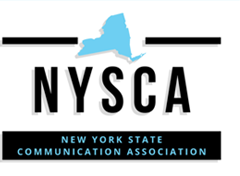Abstract
It is easy to think of communication as being primarily to do with the transmission of information, with the communication of facts, of intelligence, of things people want to know about—a view given scientific expression long ago by Shannon and Weaver (1949). The taken-for-granted background to this view being the Cartesian assumptions of a mechanical world of separate, identifiable, interacting entities in motion according to discoverable laws. Everything changes, however, once we switch to a view of communication as occurring within a ceaseless, indivisible flow of entwined strands of spontaneously responsive, expressive, living, bodily activity—a view adopted by all those who see communication as a dialogic activity (e.g., Bakhtin, 1981, 1986; Gadamer, 1975, 2000; Wittgenstein, 1953, 1980; along with many others.) Straightaway we find, instead of facing simply one kind of difficulty in life—that of solving problems—we face a second, much more basic difficulty—that of gaining orientation, of arriving at a sense of what the situation is that we find ourselves in, prior to our attempts to act well within it.
While the facts of the matter are still of importance to us, what is of even greater importance is our sensing of the relations between the possibilities for action it makes available to us and what, ethically, we feel we must do within it if we are to be the kind of person we feel we want to be. What is special about our living activities in these situations, is that they work in terms of the ways in which our past experiences give rise, within us, to an anticipatory sense of our possible next steps—ethical and political issues then enter into this process as we try to resolve on a line of action, on an expression of our feelings/sensings that “does justice” to the uniquely detailed situation we currently occupy. While some communications can change us simply in our knowledge, others can change us in our very ways of being in the world, in who we are—it is the nature of these latter which is central to this keynote address.
Dr. Shotter works internationally as an organizational consultant and doctoral examiner. His ongoing reserch interest is in the social conditions conducive to people having a voice in the developpment of participatory democracies and civil societies. Dr. Shotter’s books include Social Accountability and Selfhood (Blackwell, 1984), Conversational Realities: The Construction of Life Through Language (Sage, 1993), and most recently Getting It: Witness-Thin king and the Dialogical… in Practice (Hampton, 2011).
Recommended Citation
Shotter, John
(2013)
"KEYNOTE: The Transmission of Information: An “Awful Deformation” of What Communication Really Is – John Shotter,"
Proceedings of the New York State Communication Association: Vol. 2012, Article 3.
Available at:
https://docs.rwu.edu/nyscaproceedings/vol2012/iss1/3

